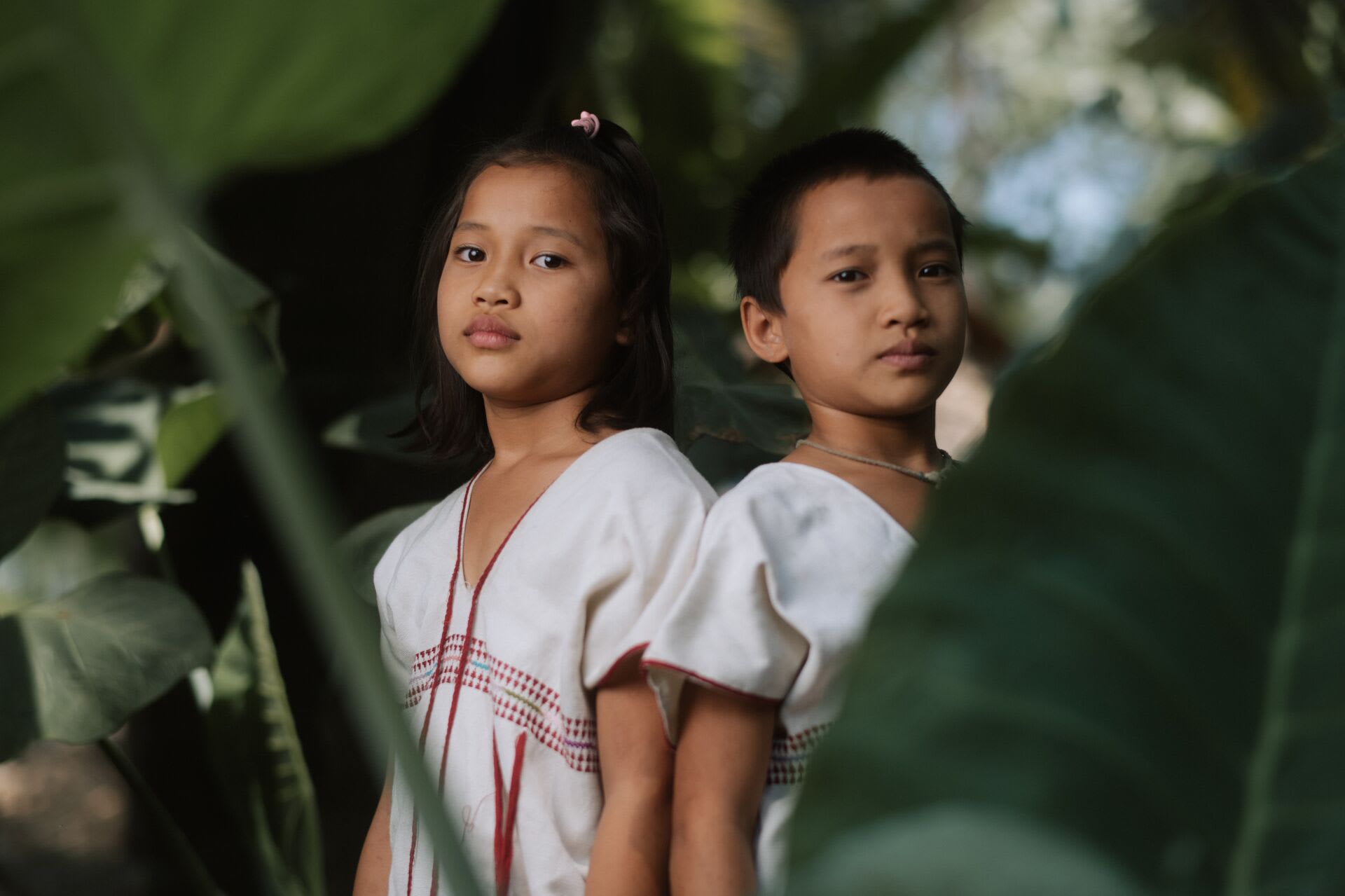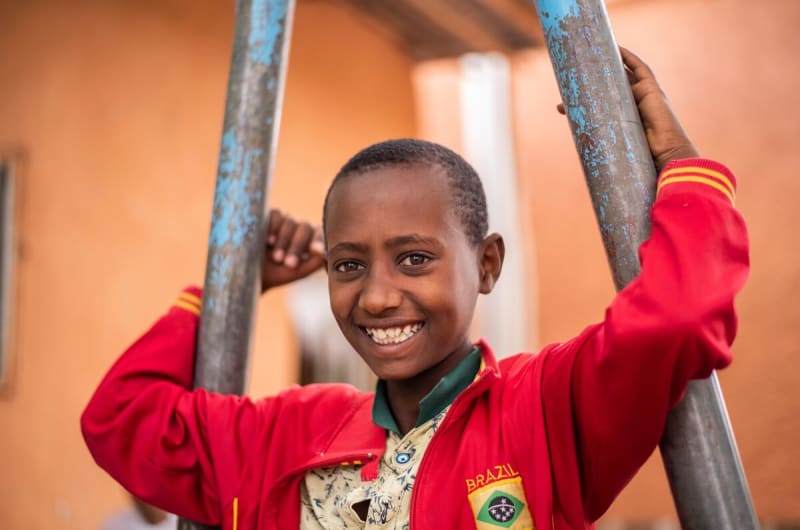This article was originally published in Compassion Canada’s Summer 2020 Magazine.
We serve a God who became flesh and made his dwelling among us, or as The Message paraphrases it, a God who moved into the neighbourhood to live life with the vulnerable, the sick and the hurting (John 1:14). A God who calls us to follow suit in our neighbourhoods, being salt and light (Matt 5:13-16). We wanted to give you an up-close look at how Compassion’s church partners in Thailand have moved into the neighbourhood to do just that—preserve dignity and protect children from exploitation.
If you look on a map of the world, place your finger on Thailand and slide it as far west as you can go, you’ll find, on the country’s edge, the province of Tak. If you look up Tak on Google Images, you’ll find a stream of gorgeous photos: waterfalls, lush foliage, ornate temples.
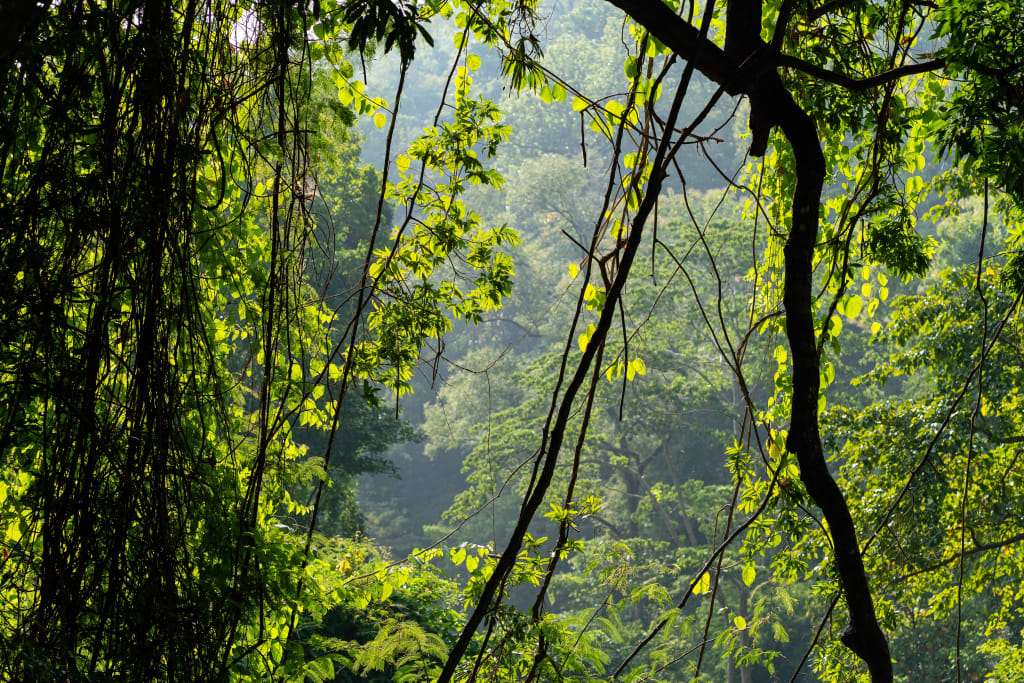
A rainforest by the province of Tak.
On the most westerly edge of the province of Tak sits the tropical border city of Mae Sot. It is the main gateway to the neighbouring country of Myanmar. It is a beautiful corner of the world, holding a gruesome secret.
The unspoken realities of poverty
Through the thick humidity rising from the ground, you’ll see casinos, large and small, along the Moei River that separates Thailand and Myamar. Their neon lights pierce the dark night. Eager tourists bustle around them, looking to make a quick dollar—betting small fortunes, collecting large debts, drinking alcohol and buying sex.
If you keep walking down the crowded streets by the casinos, your nostrils fill with the smell of curry and fried meats. Vendors sell trinkets, postcards and printed fabrics. The energetic sound of laughter comes from a group of tourists who are lining up to enter what looks like a dive bar. One of the men in the group moves to the side, and a young girl who couldn’t be much older than 17, is leaning against the doorway—painted red lips and a short black dress.
“She will pull herself together tomorrow, painting a thick layer over her tear-stained cheeks, and do it all over again.”
You look a bit closer through the doorway, and you see at least five other young girls dressed the same, strutting lifelessly throughout the room, ogled like products. You look frantically around you to make sure you’re not mistaken—that you’re not in a nightmare.
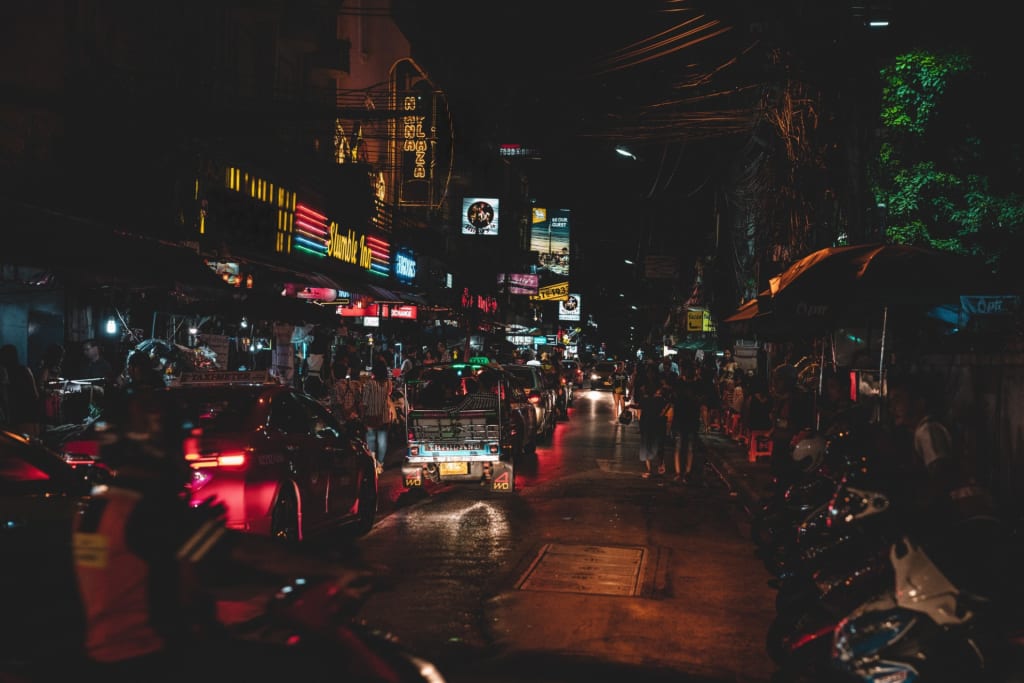
To your left and to your right, storefront signs flash red, green and yellow and your heart races. You turn your head and lock eyes with another young girl, painted up and sparsely clothed. Her glare feels hollow, but she smiles mechanically.
Tonight, she will go home to her mom and her little sister and lay her earnings on the table. She will lay her tired body on a bamboo mat on the wooden floor feeling empty, dirty and used. The rhythmic sound of the wind through the cracks in her walls will drown out the voices in her head that whisper shame and fear, lulling her into an anxious slumber. She will pull herself together tomorrow, painting a thick layer over her tear-stained cheeks, and do it all over again.
She is a fragile spirit trapped in a $12 billion-dollar industry. She’s just one out of 600,000 modern-day slaves caught in one of the world’s most popular sex tourism destinations. Many girls, just like her, live in villages like Mae Sot, where poverty cripples families and education opportunities are scarce.
For too many girls like her, dignified work is not available because of a lack of education and social standing. In the past, families like hers have been frequently displaced through forced migration, or have had no choice but to leave home to follow seasonal work. They are vulnerable to conflict and violence. They experience the unspoken and unseen parts of poverty that too few of us think of or know about.
Part One: First Church of Mae Sot, a place of protection
If, however, you walk a bit deeper into the city of Mae Sot, beyond the noise and bustle, you’ll discover a modest church with a little sign that reads, “First Church of Mae Sot”—grey cement walls and a tin roof.
It’s no accident that this humble church is planted in the middle of the hurting city. In fact, it’s very intentional. The staff at First Church have a deep heart of compassion for vulnerable children, just like the girl with the hollow glare.
They moved into the city to be a beacon of hope. A place of healing and opportunity. A steady and safe presence for this vulnerable population of the exploited, the displaced and the hurting. They work to protect children whose life circumstances make them the perfect prey for exploitation.
Children like 12-year-old Muadepaw.
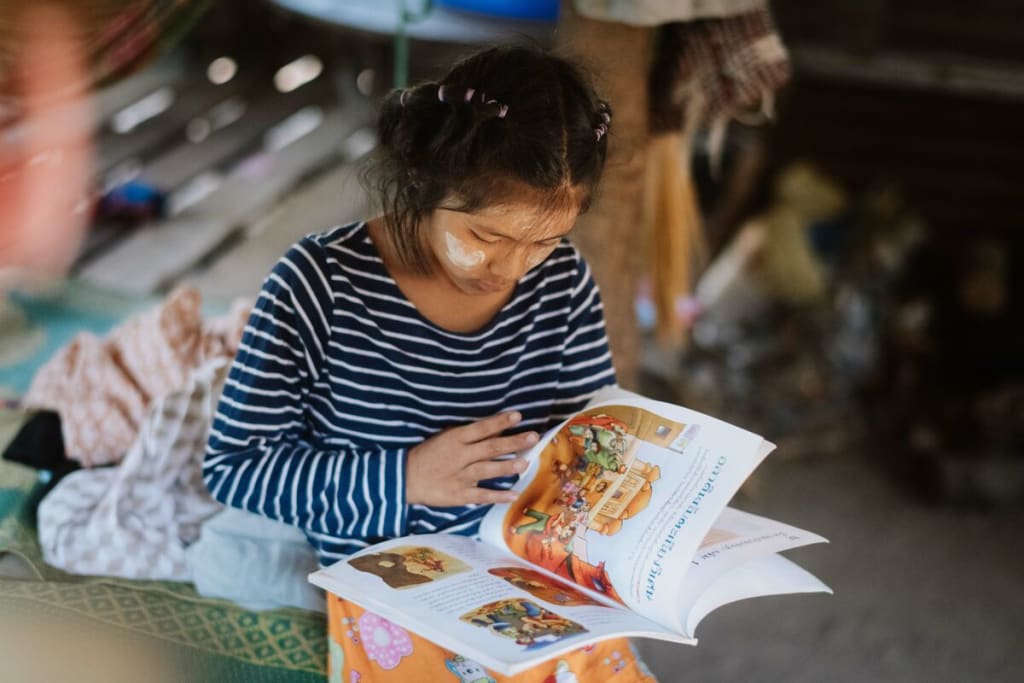
Young Muadepaw sits quietly on a straw mat under the shade near her wood-panelled home, slowly turning the pages of a children’s book. Her life couldn’t be more different than the girl with the hollow glare.
Muadepaw stares intently at the pages, cautious and solemn, processing each word on the page. In her short life, Muadepaw has seen much loss. Abandoned by her mom as a little one, she now lives with her aunt and her nine cousins. She has moved around too many times in her life to count because of threats of violence. Her aunt struggles to provide for her large family. The lines in her face show her age. She is fragile and full of worry for the future of these children.
The church staff at First Church recognize how completely vulnerable children like Muadepaw are, living within the tension of loss and desperation. For them, protection is key.
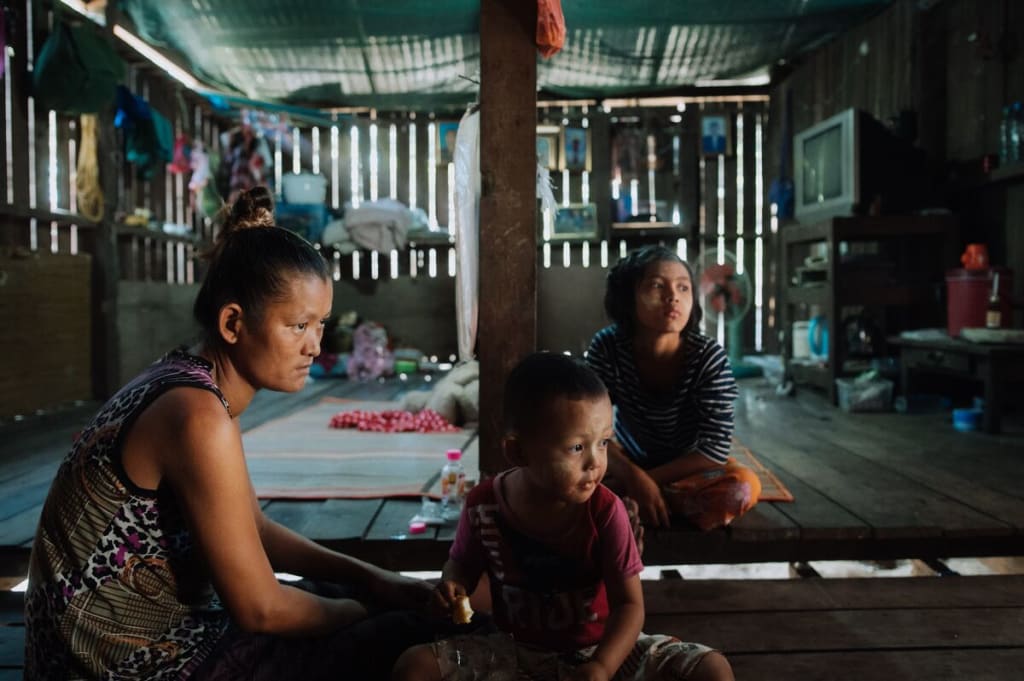
Muadepaw at home with her little brother and her mom, Demeumueda.
“When vulnerable displaced people groups live next to a prospering casino industry, children will face unique risks,” says Pastor OongMae of First Church.
“[Businesses like casinos] do not profit children; they only profit themselves. No one can exactly see the consequences of this into the future, but we have to start protecting them now. It’s important for me that we work with children here.”
In areas where instances of human trafficking are high, like the province of Tak, the sex trade industry targets young girls, around age 14. Casino owners remain ready to pay recruiters or pimps nearly $700 CAD for a girl that age.
And when children this age can’t afford to continue in their education, or their caregivers have no job, they are more at risk. The sex trade agency that exists within booming businesses like casinos deceive these vulnerable young women with the promise of an income. And though many are aware the job will be in the sex trade, many take the opportunity because the extreme poverty and desperation of their families give them no other option. And once in that world, it’s often very difficult to leave it, or escape.
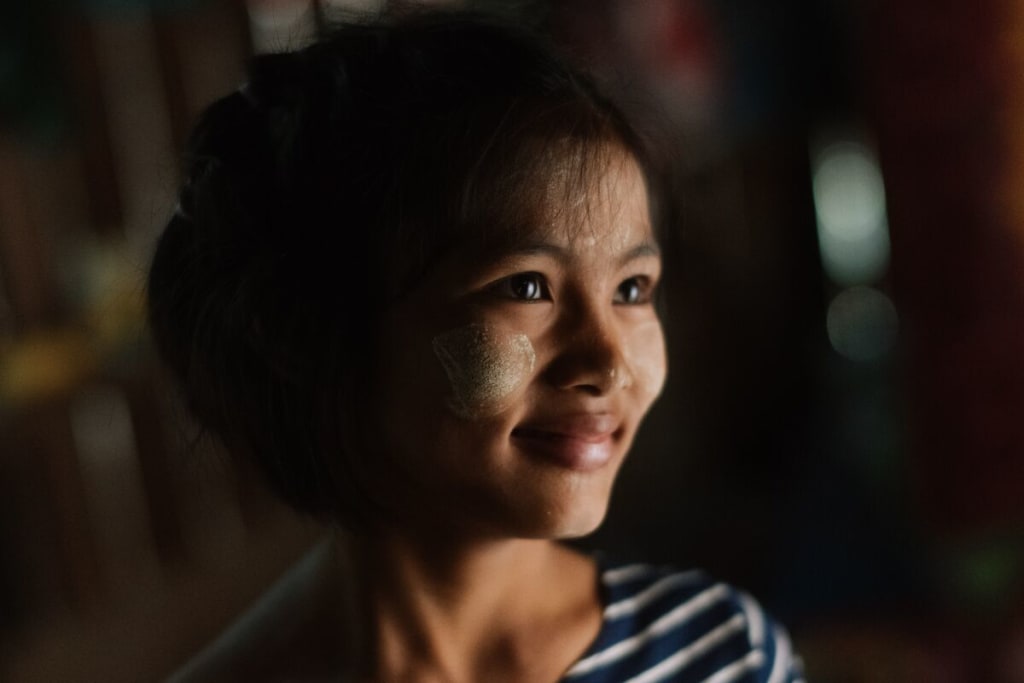
“One of my visions is to protect these children. This is an at-risk environment. I want all children to be safe,” says Pastor OongMae.
“My dream for children here is for them to have a high-quality education and for them to know God. Because of the casinos here, people go work in the industry and receive more money. Then money becomes their master.”
As a caregiver of young girls like Muadepaw, Demuemueda, her aunt, has the same fears. She worries about the risk her girls face around exploitation.
But since Compassion’s ministry has joined forces with First Church and planted itself in the middle of the community offering programs and opportunities for children and youth, her fear has melted away. She knows Muadepaw, even at her vulnerable age, is safe and protected. She sees a new lightness in her niece—a lightness that comes with knowing that she is safe and she is loved.
“We trust the staff [at the Compassion centre],” says Demeumueda.
“We rely on them. I know in my own heart if I’m no longer on earth, there will be people that take care of my children in the future. They will be safe.”
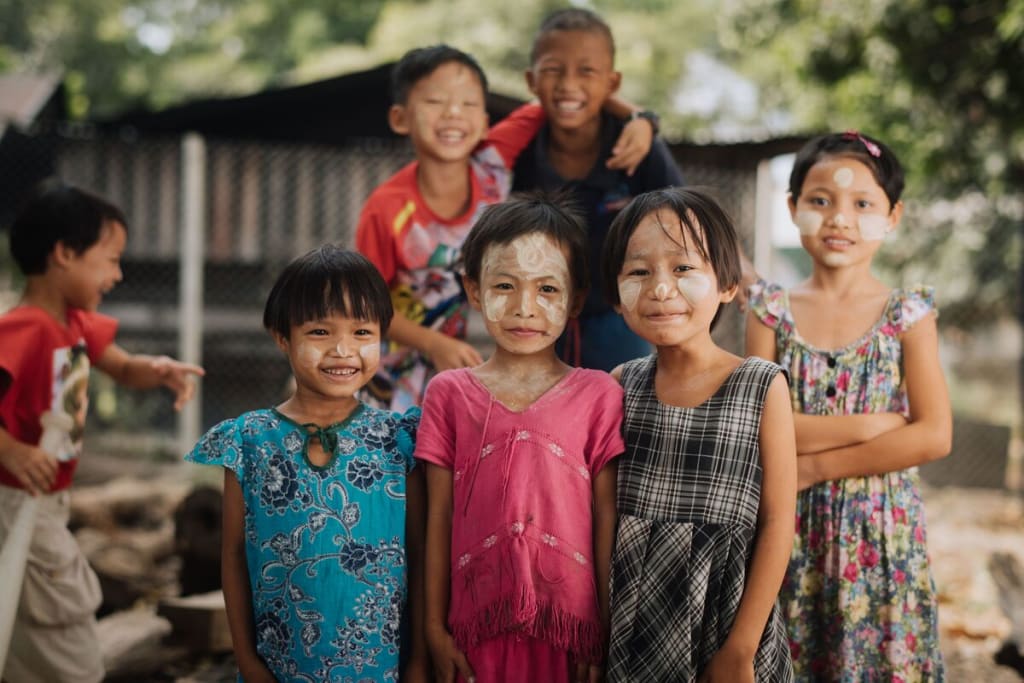
Children at the local Compassion centre playing freely knowing that they are loved and protected.
Through sponsorship alone, children are less vulnerable to being trafficked. When a child is sponsored, they are enrolled in school. Their caregivers gain access to income generation skills, workshops and tools. They’re encouraged and equipped to start planning for their future. They are connected with loving staff who are committed to knowing what is happening in their life and protecting their best interests. Every Compassion staff member in Thailand and around the world is trained in rigorous child protection standards.
Under the leadership of Pastor Oong Mea, the church has become the safe haven this community desperately needs, striving to give children a typical childhood despite the pain of their past and fear of the future. It is a place where parents can confidently leave their children when they go off to work. Where parents can undergo child-protection training to make them aware of the dangers facing their children, ask questions and implement specific practices to protect them.
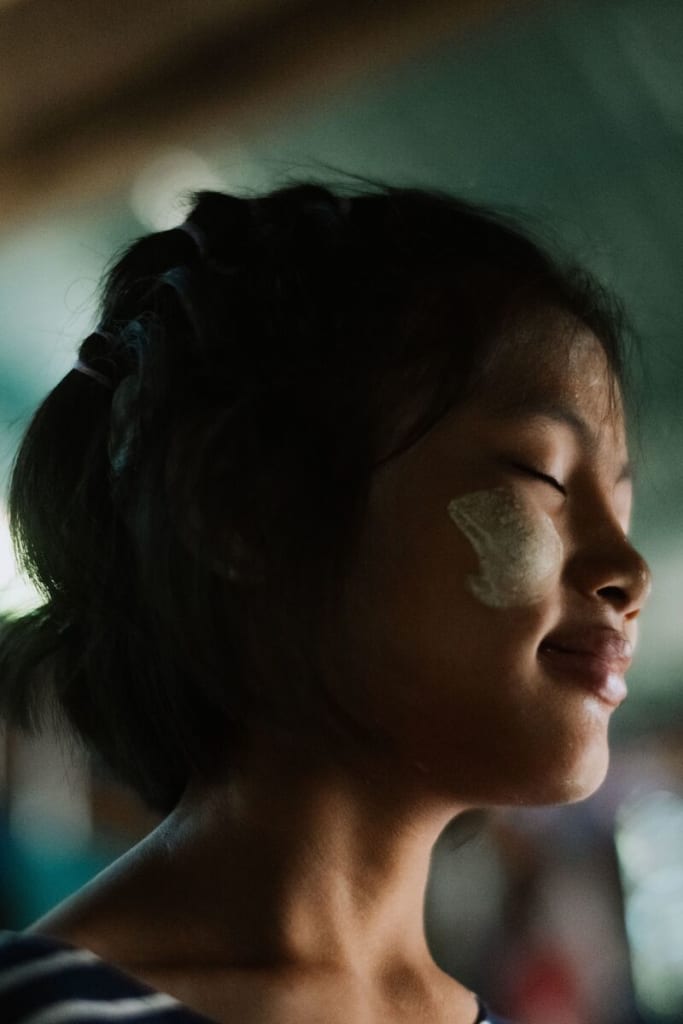
Today, Muadepaw smiles when she attends her Compassion centre. She spends time with her friends on the playground out front of the church, just being a kid. Her smile radiates a new lightness in her soul. Here, she has an unhinged hope about her future, full of dignity and possibility. She prays. She learns. She grows in confidence.
Part 2: Huey Nam Khun Church, a place of safety
If you hop in the backseat of a Tuk Tuk and drive 20 minutes down Highway 1090 from First Church, you’ll find your feet on the concrete steps of Huey Nam Khun Church— it’s cherry wood-panelled walls bold against the emerald leaved Cutch and Kokko trees that frame it.
Huey Nam Khun Church is another Compassion church partner that has moved in as a beacon of light in the province of Tak.
Ten-year-old twin sisters, Naw-Ehtha and Naw-Ehmuek attend the Compassion program here. It’s been a stable haven for them for the first time in their lives. Because of the political unrest that permeates in their province, they have had to move multiple times in their short lives.
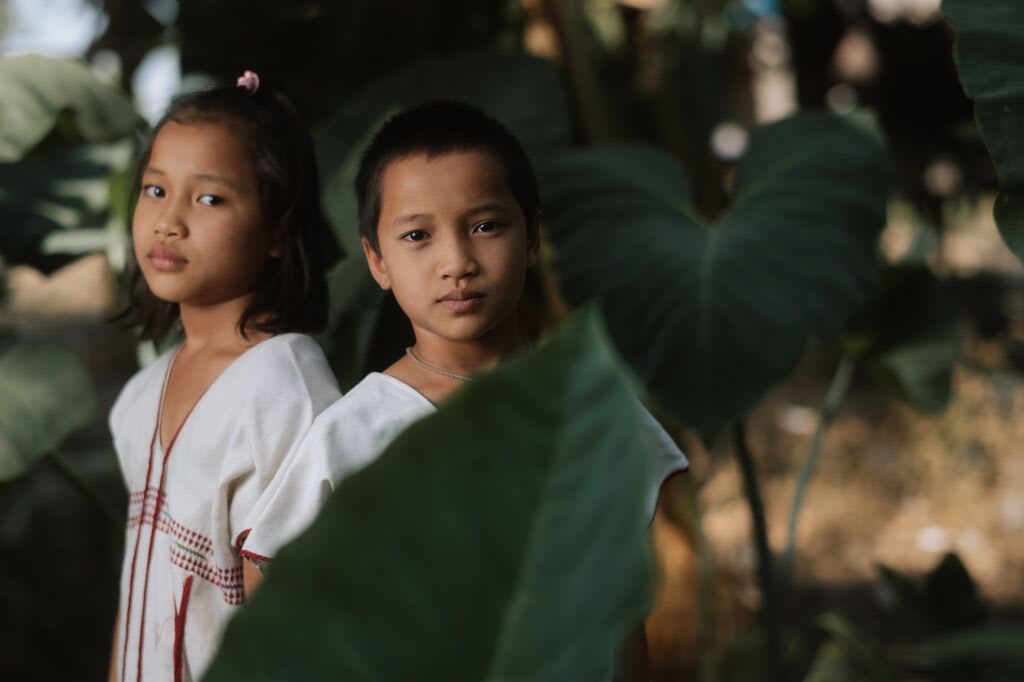
Ten-year-old twin sisters, Naw-Ehtha and Naw-Ehmuek.
In 2010, during conflict between rebel armies in a neighbouring country, the twins’ mother, Nawkripaw, escaped with her four children in tow. As they were returning to their ransacked home months later, Nawkripaw’s husband was tragically shot and killed in a violent crossfire.
Their experience isn’t uncommon.
They are just 5 of 41,000 Internally Displaced Peoples in Thailand—those forced to flee their homes because of conflict, staying within the country’s borders because of their lack of money, health and safety. They are among the most vulnerable people groups in the world. Because of their vulnerability, they are at high risk of physical attack, sexual assault and abduction. They’re frequently deprived of adequate shelter, food and health services.
Today, Naw-Ehtha and Naw-Ehmuek live in the depths of that vulnerability. Though Nawkripaw is now remarried to her second husband who provides for the family through his work in agriculture, it is not enough to provide true holistic stability they need.
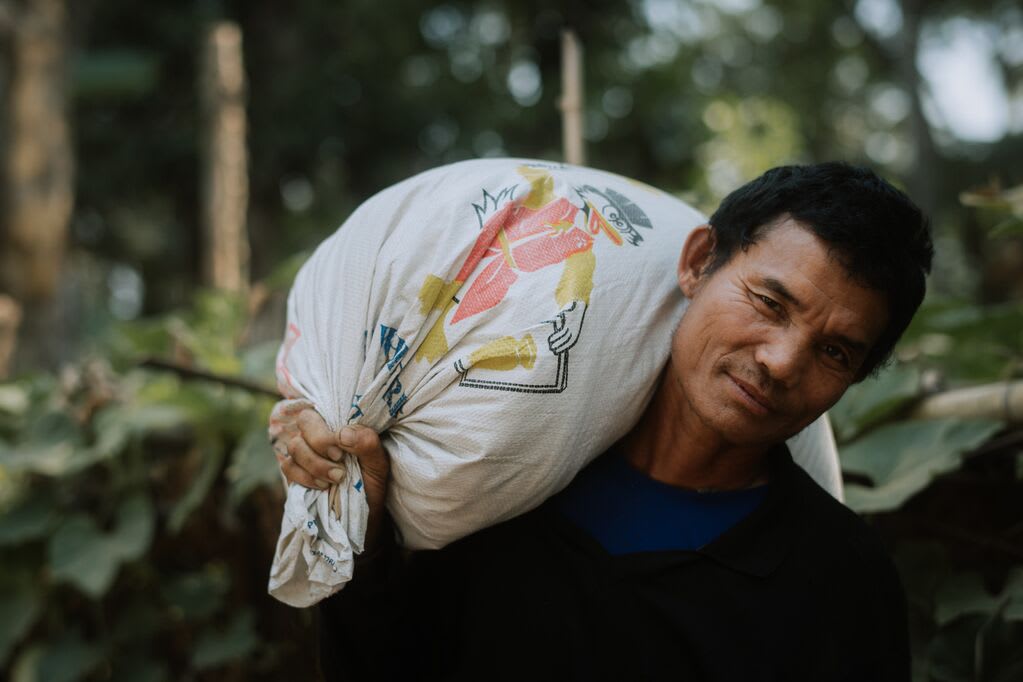
Thae-ong, the twin’s stepfather.
The vulnerabilities that exist for families like theirs, combined with their proximity to places of exploitation like thriving casinos, puts them in a desperate position. They are in frantic need a place that provides them with safety, freedom and opportunity.
The Compassion centre at Huey Nam Khun Church is that place of safety.
Throughout the church’s many years in the neighbourhood, they have been a beautifully burning light for the community. They have partnered with organizations like International Justice Mission to prevent sex-trafficking in their community and beyond. They’ve run a theological seminary for local Karen students. And, most recently, have partnered with Compassion to help release children from poverty.
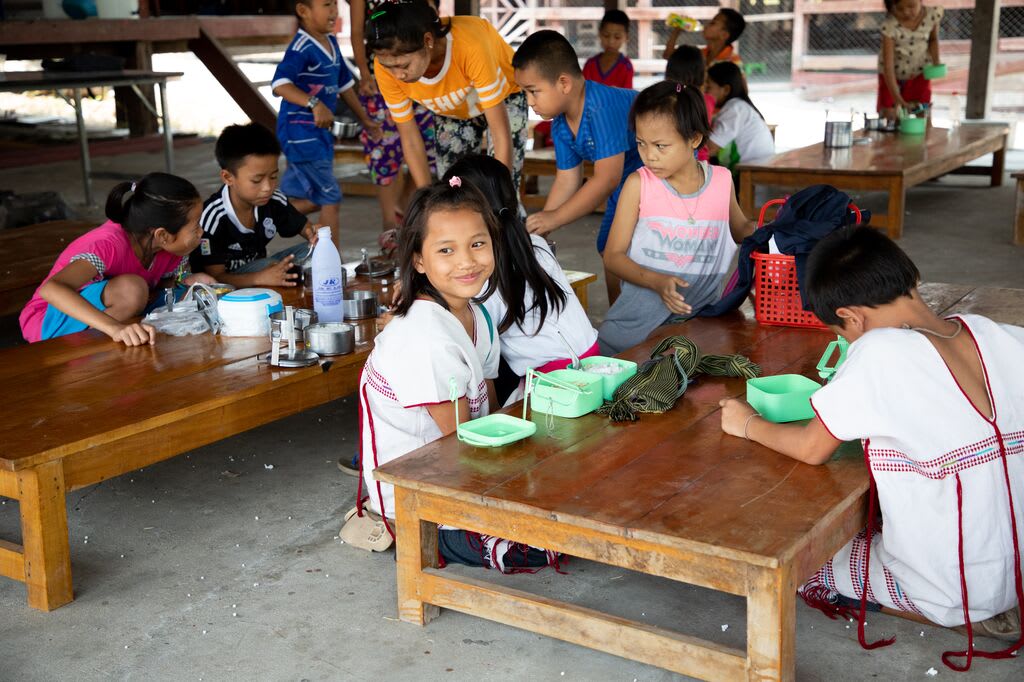
Naw-Ehtha eating lunch at the Compassion centre with friends.
“The centre provides a safe haven where children can experience the simple joy of a childhood. Here at the Compassion centre, they have the freedom to play and the freedom to learn,” says Nedoh, the director of the centre.
Nawkripaw, the twins’ mom, still clearly remembers her relief when her twins were registered into the program four years ago. She knew this was a chance for them to consistently access education and healthcare. Where they would have the freedom to dream about a different future. Where they would be safe from the dangers surrounding them.
“As long as we have peace here, this is freedom for us,” Nawkripaw says.
“If we didn’t have Compassion supporting the church here, there might not be an opportunity for my children to go to school or to have an education. My hope for my children is that I see them graduate from school and then return to develop their community here. I think my hope for my grandchildren is to see them doing the same. They could come back and be leaders of this community, of our home.”
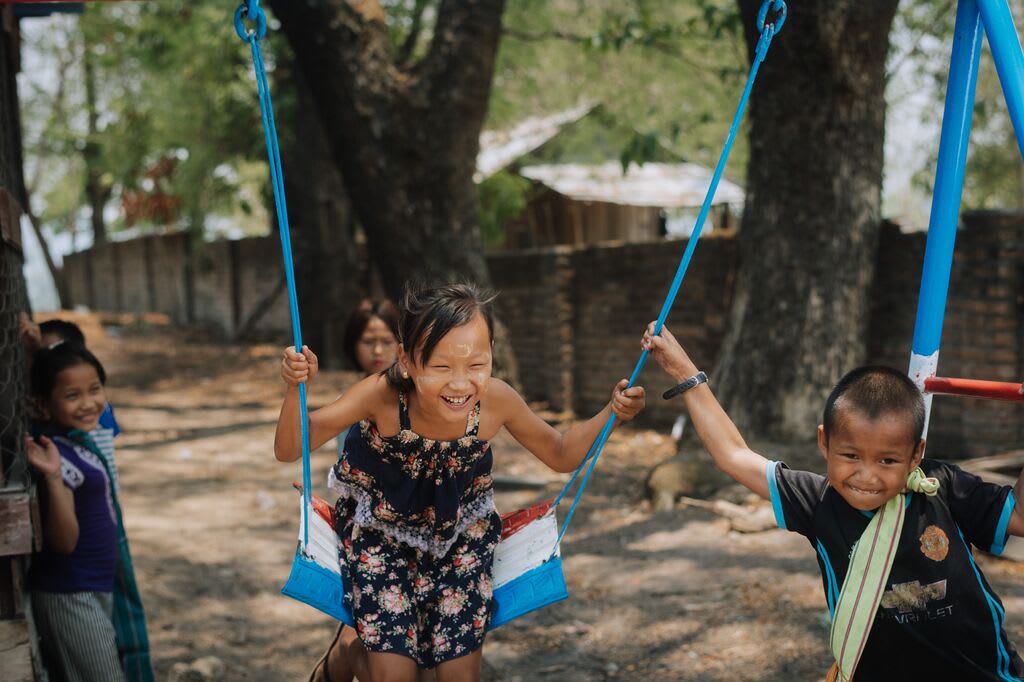
Today, the Compassion centres at First Church of Mae Sod and Huey Nam Khun Church have become the trusted safe havens for a community of people who have and continue to face challenges of trafficking, violence and displacement. They are potent salt. They are a brilliant light.
“My hope for my children is that I see them graduate from school and then return to develop their community here.”
And they aren’t the only ones. They are just two of the 100 incredible churches that Compassion partners with in Thailand to see children living lives full of promise.
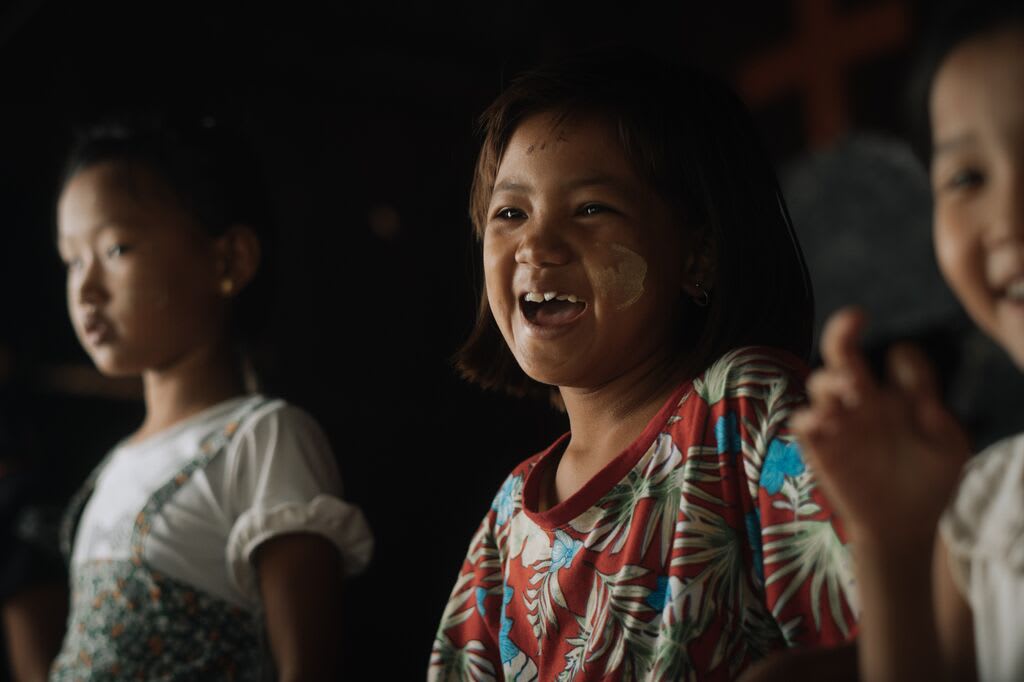
Each church has purposefully moved into their own neighbourhood pocket across Thailand— smack dab into the messiness—where their Gospel-salt and their Kingdom-light can permeate the darkness. Where they can daily be the hands and the feet of Jesus. And where they can be the voice that each child hears each day when they walk through the door, “You are known. You are loved. You are protected.”
“The Word became flesh and blood, and moved into the neighbourhood.”
John 1:14

